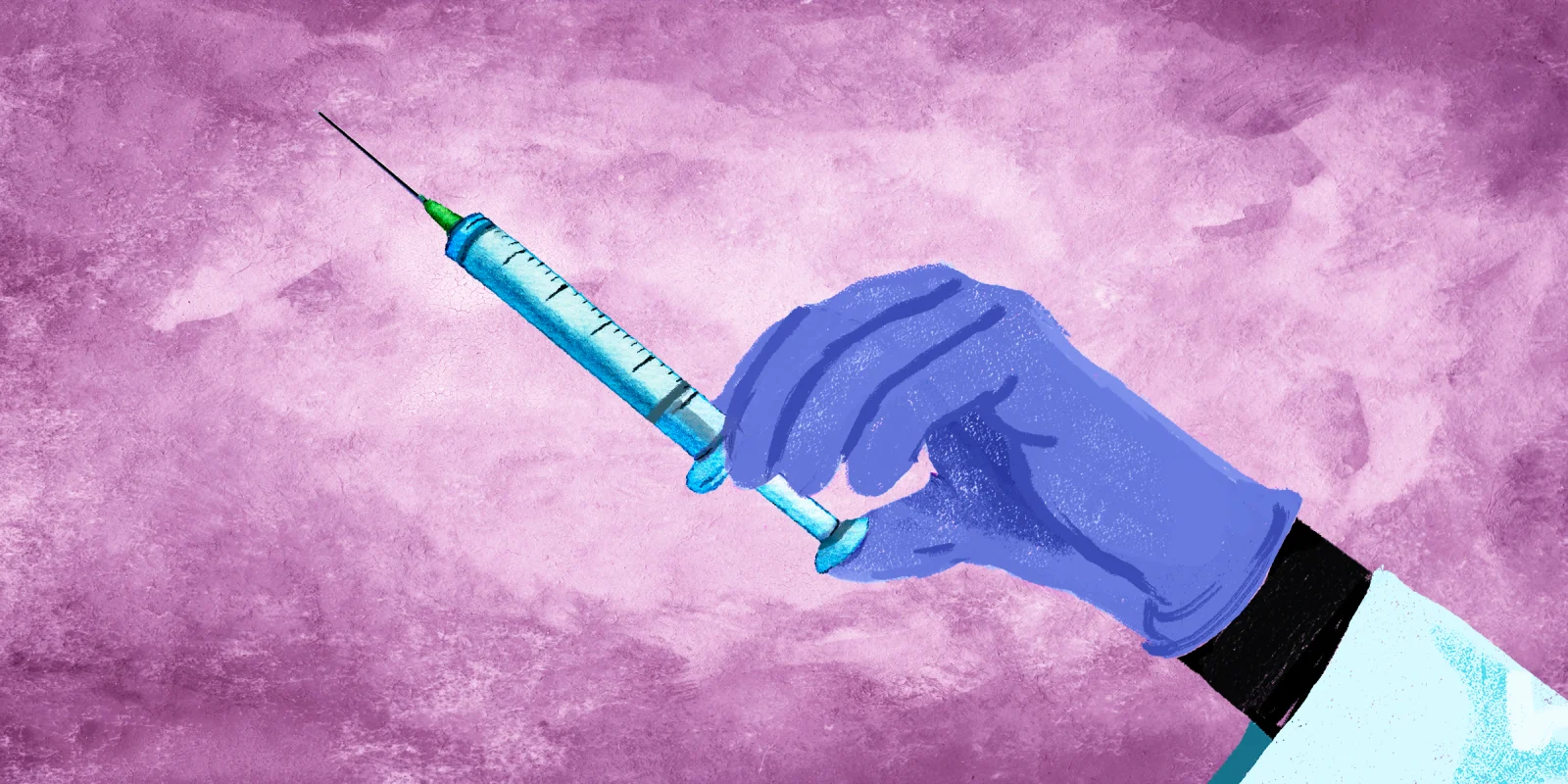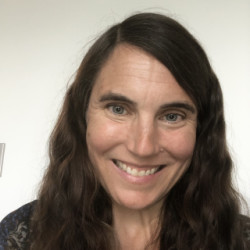Confession: When it comes to talking with patients about vaccines, I am tired. Let me start by saying that, of course, I believe in vaccines a hundred percent. I have talked the talk with patients and walked the walk with myself and my family. In 2010, that meant waiting in the rain for the H1N1 flu vaccine at a neighborhood health center with my 2- and 4-year old children, and telling the nurse my daughter didn’t have a fever or cold symptoms (she did, but I swear she was barely sick). Did I mention I was pregnant at the time? Waiting in the rain, while pregnant, with a somewhat sick child to get a flu vaccine might seem unsound, but don't worry, the plan had been approved by a real infectious disease doctor who happens to be the father of said children.
When one of my pregnant patients declines the flu shot, I have always tried my hardest not to just shrug my shoulders and move on without making sure they really understand both the safety and importance of the vaccine. If my pregnant patient ends up with preterm labor or in the ICU with flu, I need to know that I did my best to prevent it. Having known someone who was young and healthy, who brought so much to the world, and yet still died from flu in 2011, will always continue to motivate me.
So it’s concerning that my first reaction to hearing the FDA had approved the RSV vaccine for pregnant women was unmitigated dread. In a different, and better, reality, I would be curious about this, interested in learning more, excited about a new way to help babies stay healthy. Unfortunately, in this current reality, my inner voice is screaming, “No! Too soon!” I am not ready for another vaccine and I am dreading another vaccine season. The truth is, I am not yet fully “COVID recovered.”
COVID-19 brought vaccine counseling to a new and excruciating level. First, there was the tepid, early advice that pregnancy and breastfeeding weren’t reasons to “exclude” people from getting the vaccine. Recommendations quickly changed and we were then charged with educating our patients, their partners, and families to get vaccinated immediately. But it was hard to make up for the early missteps and easy to feel like we were getting sucked into ugly culture war politicization.
It was also fantastically time-consuming. We downloaded and printed decision aids, crafted Epic dot phrases, and tried to be patient when our patients’ partners told us they were already “immunized" (and they weren’t even famous quarterbacks). We were inundated with patient messages and phone calls heeding the omnipresent advice to “discuss the vaccine with your doctor.”
The problem is, we, their doctors, had first heard of messenger RNA vaccines about the same time they had. Anyone who thinks that their doctor might know more about a vaccine than medical experts at the CDC, American College of Obstetrics and Gynecology, American Medical Association, etc., must have a doctor who is either far more charismatic, intelligent, or both, than I am. When you’re drowning in clinic notes, exhausted from call, and trying to manage your own children’s remote learning, it’s really, really hard to also become an expert in vaccine medicine.
Even worse than all the extra work and having to face a seemingly endless amount of questions without answers was finding the balance between education without alienation. When does making sure people really understand the risks cross the line and become not respecting their right to make their own decisions? It’s our duty to share information with our patients and make the best recommendations for them that we can, but it’s also our job to maintain a good relationship so that they will turn to us for help when they need it. Striking this balance was sometimes hard and uncomfortable.
So here we are now. Our glorious summer, the grace period between flu seasons, has come to an end, and back-to-school season is going to be a doozy this year. Prenatal care will now include counseling patients about flu, COVID-19, Tdap, and RSV vaccines (not to mention possibly hepatitis B soon as well). I don’t think I’m alone in my fatigue.
But as doctors, and especially as ob/gyns and midwives, overcoming not just fatigue, but complete exhaustion, is our superpower and we can do this. Now, more than ever, we cannot drop the ball on vaccine medicine. For the first time in the last decade, HPV vaccination among adolescents did not increase. Even more concerning, only 52% of 13 year olds in the U.S. have received one dose of HPV vaccine. And maybe I read and watch too much dystopian fiction and entertainment, but it’s not hard to imagine that the next pandemic will be a lot worse than COVID-19. If we’re lucky enough to get a vaccine for it, we will all need to roll up our sleeves, and STAT.
The thing is, we need more help. The front-line doctors, midwives, and nurses can’t be left to muddle through it again by ourselves. When trying to educate myself about the RSV vaccine for the sake of this piece and my patients, I again found, not surprisingly, the recommendation that people should discuss the vaccine with their doctor. Advising people to speak to their doctors about vaccines makes sense, but we need talking points, counseling tips, and data summaries in order to be able to guide our patients. Being able to access a new JAMA article about the RSV vaccine during pregnancy quickly and easily without the paywall would also help.
We need our practices and nurses to be empowered to send patients helpful information about vaccine choices without just forwarding the patient message or call to the overworked clinician. We need better and more available patient education materials so that people understand the safety and effectiveness of the vaccines we recommend.
And perhaps more than anything else, we need to keep politics out of vaccine decision-making. We can’t afford to let politicians and the media create a climate where we feel like we’re facing off on different sides of a divide with our patients. Vaccines, health, and our relationships are too important to let this happen again.
What recent issues have challenged your day-to-day clinical work? Share your experiences in the comment section.
Dr. Jennifer Boyle is an ob/gyn who lives with in Boston, MA with her husband and her three teenage children. In her free time, she runs, reads, and bonds with her labradoodle, Teddie. Dr. Boyle was a 2022–2023 Doximity Op-Med Fellow, and continues as a 2023–2024 Doximity Op-Med Fellow.
Collage by Diana Connolly and Jennifer Bogartz







